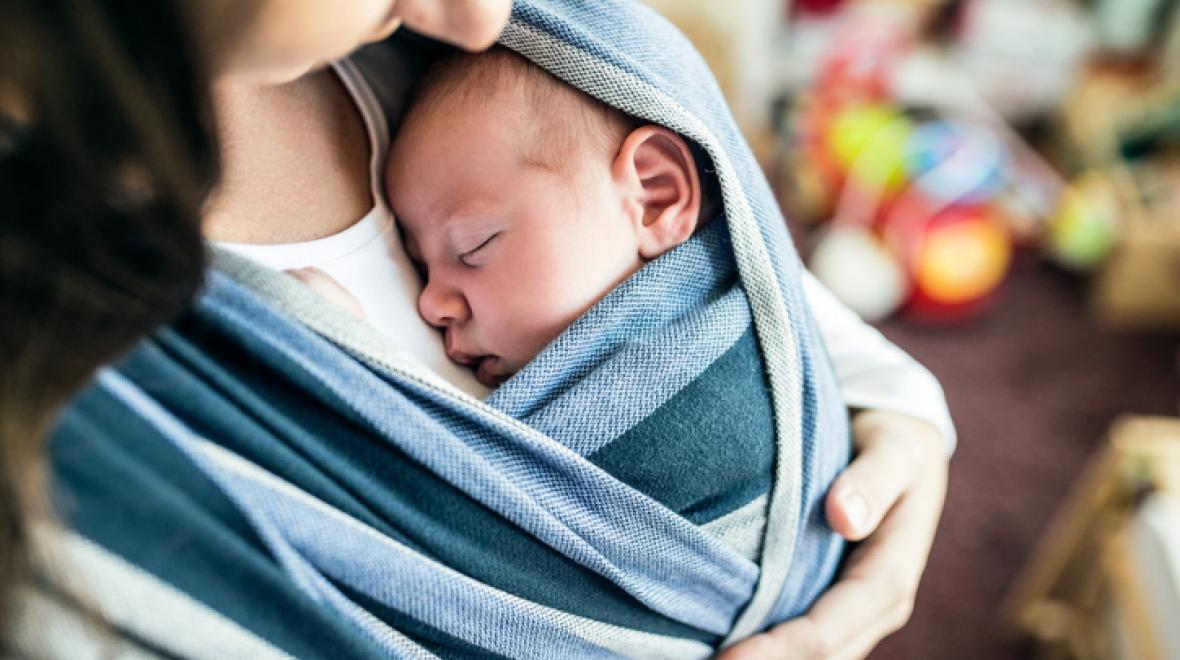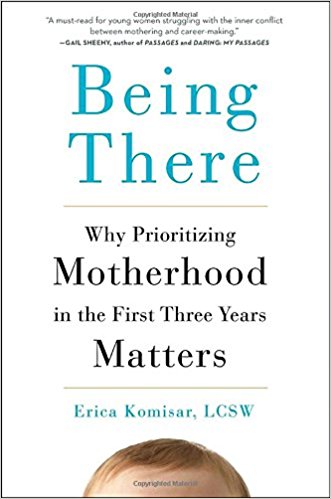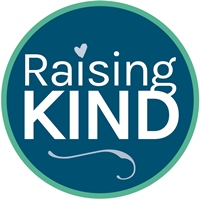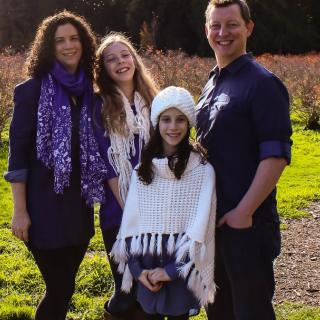
 “As a society, we have devalued motherhood.”
“As a society, we have devalued motherhood.”
This observation is one of the motivations that led Erica Komisar to draw on 27 years of private practice as a parenting coach and psychoanalyst and write her new book, Being There: Why Prioritizing Motherhood in the First Three Years Matters.
Published in April 2017, Being There makes the case that a mother’s “emotional and physical presence in the first years of her child’s life have monumental impact on a child’s ability to grow up emotionally healthy, happy, secure and resilient.”
By the time a child is 3 years old, the right side of the brain, responsible for emotional regulation, is 85 percent developed. This is why Komisar places an emphasis on the first three years. Simply stated, more is better when it comes to connecting and “being there” with a child, she says.
Not surprisingly, Komisar’s argument is poised to come under fire in a society where public and workplace policies have made it difficult for women to take that time even if they wished to. The good news? The book explores how mothers can nurture not only their child’s well-being, but also their own well-being at the same time.
Recently, I had the opportunity to ask Komisar about her ideas.
Why did you write this book and what is the message you hope to convey?
I wrote Being There because I saw a disturbing trend in my practice and in society in general: More children were being diagnosed, and earlier, with mental disorders and emotional problems. I discovered, over the course of my 27 years in practice and through the study of research on attachment theory and neuroscience, that children were at higher risk for social, emotional and developmental issues when the essential presence of a mother was missing. It became clear to me that as a society we were failing our children by not placing greater emphasis on a mother’s role in the first three years of her child’s life.
 What does it mean to be present as a new mother?
What does it mean to be present as a new mother?
Being present means being physically and emotionally present. It is possible to be physically present while being checked out emotionally, in which case you are also absent. Being present means being interested in your child, being in the moment with no place you would rather be, no one you would rather be with and nothing else you would rather be doing. It means getting rid of your distractions like technology and your work and interacting with your child. Connection is the key to presence and that requires mothers to be self-aware, empathic toward their child and sensitive to their child’s emotions. It means slowing down your pace of life.
Are mothers really less present than they have been in the past? Some data show that parents spend more time with their kids now than they did in decades past.
The more emotionally and physically present you can be in the first three years the better the chance they will be emotionally secure and healthy. Having said that, healthy separation is of equal importance and value to healthy attachment. Our children need both secure attachment and a bit of space from the beginning.
Many mothers can’t take sustained time off work even if they wished to. What advice do you have for them?
This is not a book about working versus not working; rather it is a book about prioritizing your children's emotional needs in the first three years. For a working mother, this may mean taking off as long as you can after your baby is born even though it challenges the culture of your workplace. Do the kind of work where you don't bring homework home, leaving your distractions and technology at the door until your children are asleep, be there as much as possible in transition times. Preserve your energy for the end of the day when your children need you most. Most importantly, be there emotionally when you are there physically.
If mothers abandon their careers for the first three years of their child’s life, won’t this be a major setback for women’s progress?
Freud said we need love and work to be happy, but love should always come first. I’m not suggesting that women should abandon their careers, rather that they reevaluate their investment of time and energy in their career if they are going to have children. We all have finite internal resources; the more that goes into work, the less there is for our families and ourselves.
We all have finite internal resources; the more that goes into work, the less there is for our families and ourselves.
Life is long. If you have your children when you’re younger, you have many years to build a career after they need you less. If you have children when you’re older, you have more political capital to negotiate an arrangement that benefits both you and your employer. Your career detour can mark a new path for the women who follow.
What policy and cultural changes need to happen to support that critical period in a child's development?
We need policy changes which provide a real maternity leave policy for all mothers to be home with their babies full-time for at least 6 months to a year and then the ability for mothers to work part-time and have flexibly for the remainder of the three years. We are the only [industrialized] country in the world to not recognize the significance of mothers to babies in the first three years and to overemphasize work over relationships.
How about the role of fathers and other caregivers?
Fathers are important, even critical for development but are not from a biological stance interchangeable with mothers. Research shows that mothers and fathers nurture differently and that nurturing even comes from a different part of their brains. In addition, mothers and fathers, when they nurture, both produce oxytoxin, a neurotransmitter in the brain produced when we love or bond with our babies. Oxytocin has a different effect on mothers' and fathers' brains. It makes mothers more sensitive and empathic nurturers and it makes fathers more playfully stimulating.
In the first three years, babies need more sensitive empathic nurturing to grow their social emotional right brain. Fathers are critical for separation. Their playfulness and encouragement of independence helps children to separate when the time comes but is not helpful as a replacement for sensitive nurturing. Having said this, fathers are staying home with babies as primary caregivers and we need to teach fathers to be more like healthy mothers in these early years.
A mother helps a baby with emotional regulation moment to moment. What if she struggles with her own emotional regulation?
When a mother struggles with emotional regulation she needs to get help so she can help to regulate her baby’s emotions. I never give up on mothers and babies, and rather than promote mothers who are struggling to leave their babies in the hands of others, I encourage mothers to get help so they can become the best mothers they can be. We have to identify early when a mother is struggling so we can provide her with the support she needs rather than disregard her struggles as normal. We know the brain is plastic throughout life and it is never too late.
What advice do you have for a mother who felt she was not present for her kids during those first three years?
It is never too late to be emotionally and physically present for your children. There is a wormhole between toddlerhood and adolescence, which means that you have another opportunity to make a big difference in the emotional life of your children by being as emotionally and physically present as possible.











